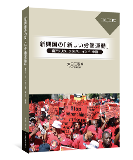Japanese eBooks
eBook

"New Labor Movements" in the Emerging Economies: South Africa, Brazil, India, and China
Authors/Editors
Hitoshi Ota
Publication date
March 2021
ISBN
978-4-258-04647-8
Download eBook for free
Available in EPUB and PDF format for full book. EPUB files can be opened in eBook readers.
Buy the print-on-demand book
About this book
About this book
Trade unions in some emerging economies where rapid industrialization was taking place in the 1970s and 1980s led militant labor movements that not only sought wage increases and improvements in working conditions, but also questioned the model of economic development of their countries as well as aimed at breaking undemocratic regimes and practices. In the process of achieving their goals, these trade unions also engaged in community-based collaboration with other social groups and community organizations. This book analyzes the historical development and current state of these "new labor movements" in four emerging economies—South Africa, Brazil, India, and China—that arose in the 1970s and 1980s.
Contents
Preface
Introduction "New labor movements" in the 4 emerging economies
Author:Hitoshi Ota
Chapter 1 Transition of the "new labor movement" in South Africa: The case of the Congress of South African Trade Unions (COSATU)
Author:Chizuko Sato
Chapter 2 Transition of CUT borne from Brazil’s "new labor movement"
Author:Ryohei Konta
Chapter 3 Two "new labor movements" in India
Author:Hitoshi Ota
Chapter 4 Two "new labor movements" in China: 1989 Tiananmen Square protests and Labor NGOs in 2000s
Author:Mami Yamaguchi
Index
Preface
Preface
This book is the product of the research project "the new labor movements in the emerging economies" organized at the Institute of Developing Economies from FY 2018 to FY 2019. Today, research on labor movements is not being actively conducted in Japan as before. Also, research in Japan mainly focuses on labor movements there and in other developed countries, and it is rare to find Japanese literature these days studying labor movements in developing countries. In this context, this book closely examines labor movements in four emerging economies—South Africa, Brazil, India, and China—from the perspective of "new labor movements." Workers are not necessarily the only principal players of "new labor movements" discussed in this book. In addition, the location of activity and action of these movements is not confined to the workplace, nor are their goals limited to increasing wages or improving working conditions. In this book, the "new labor movements" are classified into two modes—"emerging-economies mode" and "inclusive, rights-advocating mode"— and chapter authors from different specialized research fields freely discuss relevant issues based mainly on situational analysis, taking into account one or both of the two modes. Each author, however, pays significant attention to the history of labor movements in the country on which he or she focuses. The reason is that new things can be clarified in comparison with past things.
One of the focal subjects studied in research on labor movements in developed countries concerns revitalization of labor movements, and one main viewpoint argued there is "social movement unionism." In research on labor movements in developing countries, however, social movement unionism has been discussed in a context that is different from the one considered for developed countries.This book first clarifies this point. The prototype of social movement unionism in developing countries can be seen in the labor movements in South Africa (Chapter 1) and Brazil (Chapter 2). Also, in developing countries, a non-negligible role is played by labor movements that do not rely on trade unions or are outside of the concept of unionism. Such labor movements are examined in the cases of India (Chapter 3) and China (Chapter 4). Despite differences in the details across the "new labor movements" in the countries considered, they commonly aimed or have aimed at breaking the status quo and overcoming difficulties faced by workers.
This book is published mainly in the form of an electronic book. The Institute of Developing Economies decided in principle to make available online, free of charge, all research results published in Japanese by the Institute, starting in FY 2020. These publications can be downloaded in the EPUB and PDF formats and can also be printed out. The paper version (print-on-demand, POD) of the publications can be purchased through Amazon, Sanseido Bookstore on Demand, and Rakuten Books. Interested readers are encouraged to take advantage of these outlets.
Initially, the research group planned to study five countries. However, regrettably, an examination of the "new labor movement" in the Philippines could not be included in the book due to some misfortune. The research group faced various difficulties, but could ultimately complete its tasks thanks to cooperation and advice from many people. Though I do not mention their names individually here, I would like to thank people in the four countries who cooperated in studies conducted by the research project members; people in Japan associated with trade unions, experts in labor-related government administration, and researchers and academics, who willingly took part in interviews on labor movements and labor issues or who generously shared their expert knowledge; people who provided supports in running the research project and who were involved in the editing and publication of this book; and anonymous referees from the Institute. In passing, this book's content is current as of January 2020 unless noted otherwise.
Editor, February 2021


